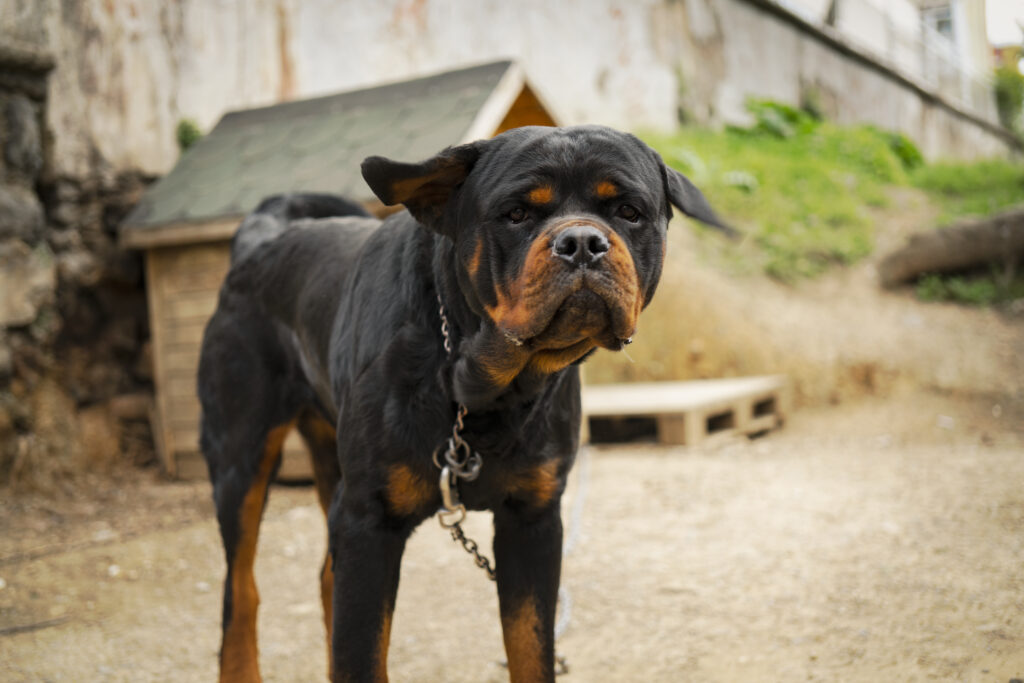Legal Consequences of Dog Bites in California: How Homeowners Can Be Affected
Dog bites can have serious legal consequences for homeowners, even if the dog belongs to a family member living with them. If you live in California and you or a loved one own a pet, it’s important to understand the legal consequences of dog bites within the state.

California’s unique legal structure and case law precedent surrounding dog bite disputes is complicated, but keep reading for an explanation on the various aspects of dog bite liability, homeowner responsibilities, and potential consequences that you should be familiar with if there’s a dog in your home — even temporarily.
We’ll also cover how you, as a California resident or homeowner, can protect yourself from liability and mitigate any risks you might face now or in the future. Let’s get started!
Liability for Dog Bites
In many states, dog owners are held strictly liable for injuries caused by their pets. This means the owner is responsible for damages even if they had no prior knowledge of the dog’s aggressive tendencies.
California is one of these “strict liability” states when it comes to dog bites disputes. The legal effect of this can be harsh for dog owners and those with dogs living on their property. California’s strict liability dog bite rule means that the victim of a dog bite does not have to prove that the other party knew or should have known the dog could be aggressive or likely to bite.
In many other states, the reverse of this concept is commonly known as the “one bite rule,” which you may have heard of. In essence, a dog owner can usually only be held liable for a dog bite if the dog has bitten before — or in other words, the dog owner was on notice of the dog’s potential for aggression and “let” it happen again. The law is far stricter in California, where the “one bite rule” does not apply.
However, in California, if a dog owner knew or should have known of the dog’s “vicious propensities,” they may be liable for damages related to the victim’s pain and suffering. In effect, a dog owner or other liable party that was aware of the dog’s aggressive behavior can end up paying more to the other party in a dispute than if they didn’t know about the dog’s aggression.
Homeowner Responsibility
Liability often extends beyond just the dog’s owner. Some states hold the person “harboring” the dog responsible, which could include homeowners allowing a family member’s dog to live on their property. Broadly speaking, this is true for California residents.
There are exceptions to this rule, however. California homeowners will generally not be liable to a trespasser over the age of 18 years old who is bitten by their dog.
Potential Consequences
Homeowners found liable for dog bites may face:
- Civil lawsuits requiring them to pay for medical expenses, lost wages, and pain and suffering of the victim.The exact liability of a dog owner or property owner will vary from case to case depending on the circumstances and the parties involved. For example, case specific facts may make all the difference in whether a party is liable for pain and suffering damages—a type of monetary payment that can be extraordinarily high. The variance in dog bite liability cases is just one of the reasons why it’s critical that every dog bite victim and every dog and/or property owner involved in a dispute reaches out to their own qualified counsel. Your attorney will be able to provide legal advice tailored to your specific situation.
- Potential criminal consequences in severe cases, including fines or even jail time. Criminal consequences are typically reserved for repeat offenders or those who act with intent.
- Increased insurance premiums or difficulty obtaining homeowners insurance in the future.
Defenses and Mitigating Factors
As a California dog owner, homeowner, or both, you are not without power to protect yourself against dog bite liability in the state. Some potential defenses and risk mitigation strategies for homeowners include:
- Victim provocation: If the victim provoked the dog in a way that instigated attack, those circumstances may reduce or eliminate the liability of the other party.
- Trespassing: If the victim was over 18 years old and was unlawfully on the property, those circumstances may reduce or eliminate the liability of the other party. Generally, someone is lawfully on a person’s property when 1) the property owner has invited them (whether actually or implicitly) to be there; or 2) the person is performing a lawful duty, like delivering mail or a package or engaging in door-to-door marketing. Others may be trespassers — but it’s important to discuss the specifics with a qualified California attorney.
- Comparative fault: Some states will consider whether the victim’s actions contributed to the incident. California operates under the “pure comparative negligence rule,” meaning that a dog or property owner may be able to reduce their liability or pay less in damages if the victim had some amount of responsibility in the incident. How much responsibility each party had in the incident is a question of fact for a judge or jury to decide.
Steps for Homeowners
To protect themselves, homeowners should:
- Ensure proper training and socialization of all dogs on their property.
- Post a “beware of dog” notice on their property to deter unknown visitors and alert known visitors to the presence of the dog.
- Monitor interactions between guests and all dogs on their property.
- Comply with local leash laws and containment regulations.
- Familiarize themselves with the dogs of guests on their property.
- Consider additional liability coverage through their homeowners insurance.
- Be aware of their state’s specific dog bite laws, as they vary significantly.
Understanding these legal implications is crucial for homeowners to mitigate risks and ensure responsible pet ownership, whether the dog belongs to them or a family member residing in their home.